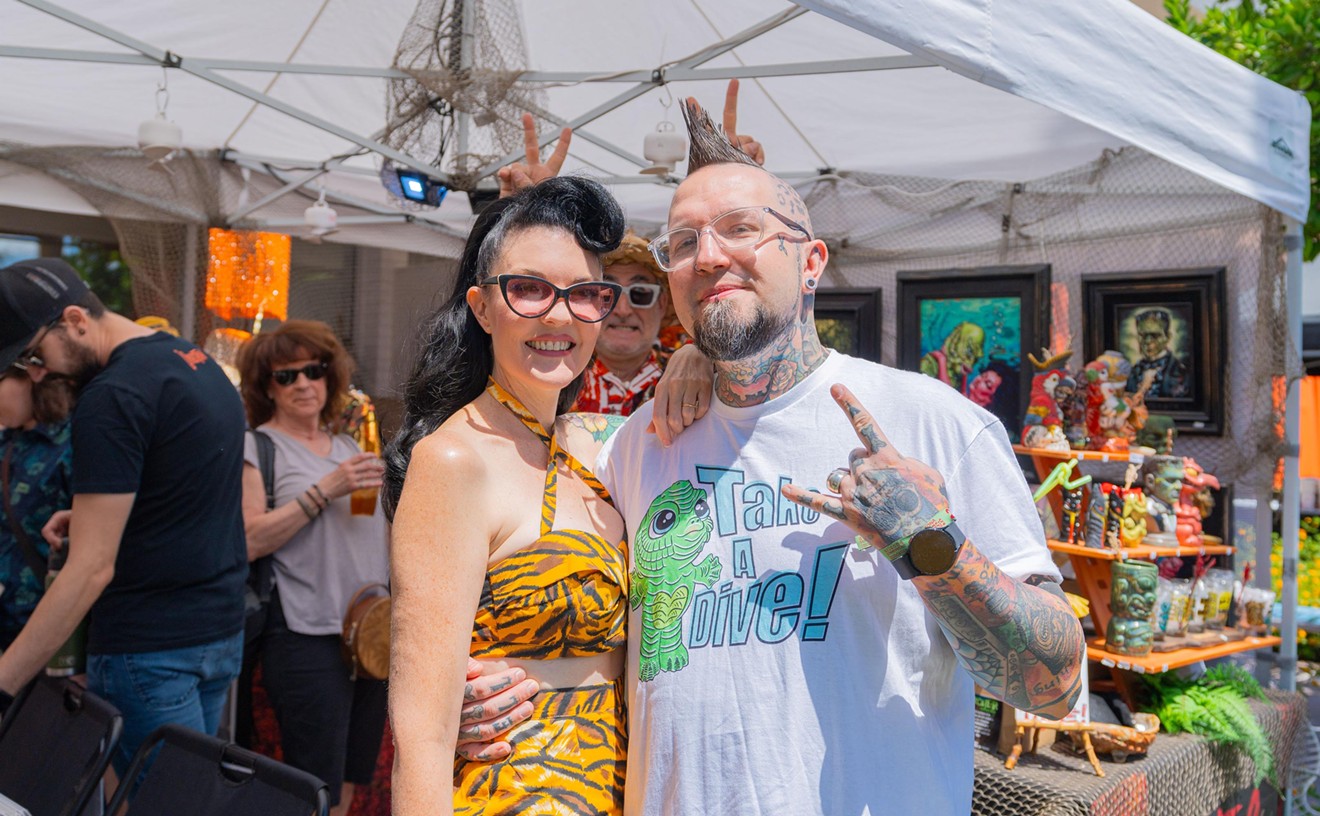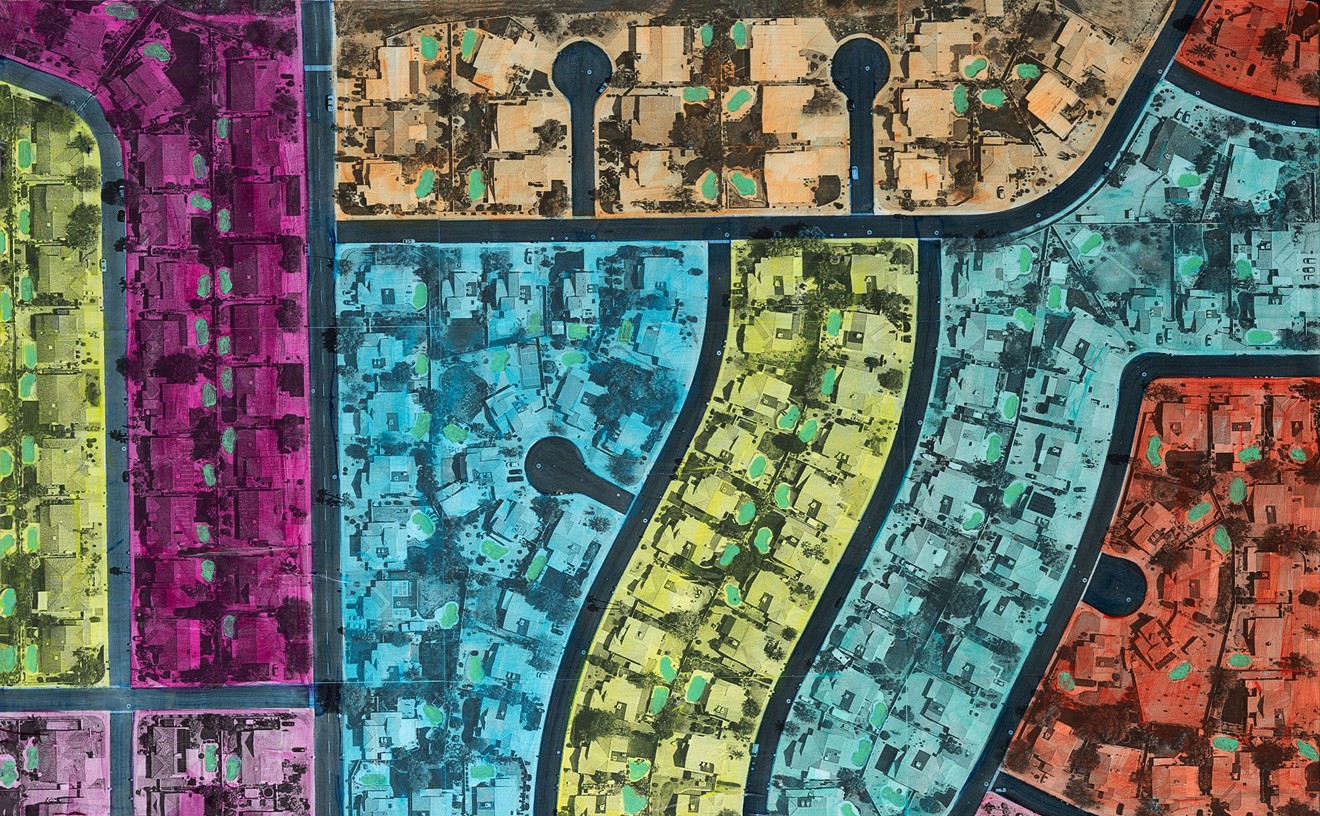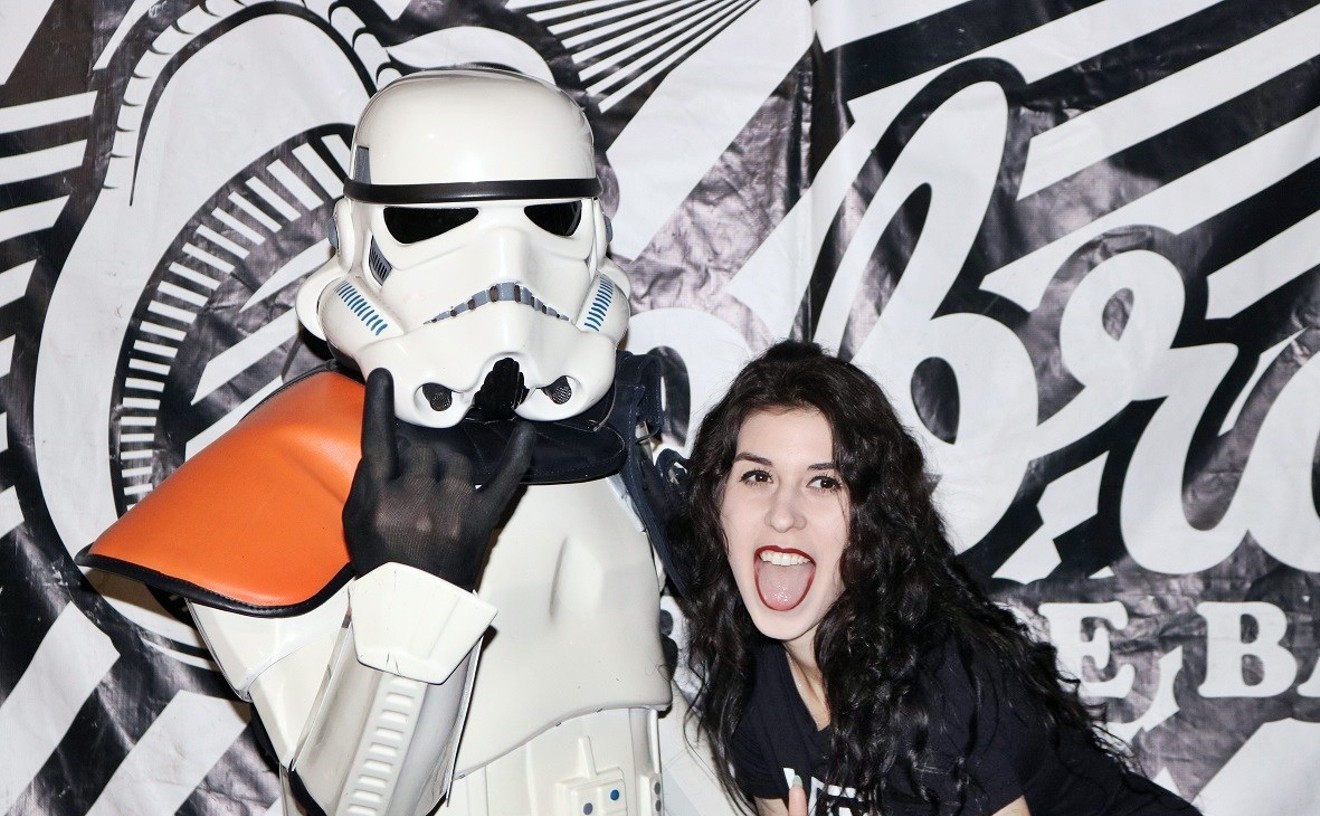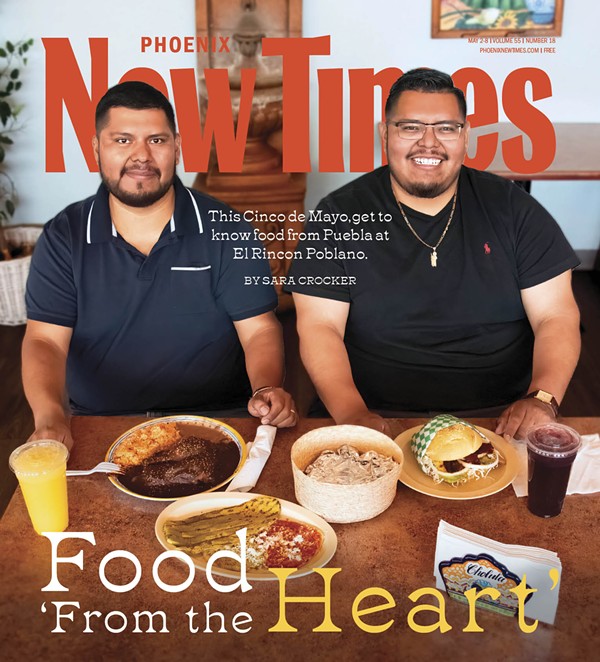I also remembered being bored at Pioneer when I'd visited before, and was surprised to find it kind of charming this time. It could be because last time I was there was in 1974 when I, consumed with junior high ennui, hated everything.
"Where's the whorehouse?" I remember asking my history teacher, who'd dragged me and 30 classmates to "see where the Old West began." Mr. Scheidler wasn't amused.
Pioneer, established in the mid-'60s on a 92-acre hunk of state-owned land at 3901 West Pioneer Road, north of Carefree Highway, is an exhibition of Territorial Arizona life that depicts a 20-year period from the 1870s through the 1890s. It's a cowtown with the volume turned way up: A saloon, a teacherage, an opry house, and a passel of old log cabins surround a western square where staged shoot-outs and 10-gallon hats help re-create the bleak and violent desert life of Arizona's pioneers.
When I drove out to Pioneer recently, it was — I thought — to say goodbye. Rumor had it that the old town play park was in such financial trouble that it was going to be disassembled and possibly sold off to other tourist traps in neighboring towns. This wasn't news, exactly; Pioneer — despite the fact that it attracts a ton of foreign visitors each summer, according to office manager Becky Patton, and hosts about 600 kids a day throughout the school year — has been barely scraping by almost since it opened.
But that, like Pioneer's rustic horse-and-buggy stall, is a thing of the past. With a boxful of voter-approved bond money, the city of Phoenix bought the land on which Pioneer resides and is leasing the property to the nonprofit museum for about a hundred bucks a month. Last month's sale of Pioneer to the city becomes official on July 15.
It was a narrow escape. Because the founders of the museum (among them Wesley Bolin and Barry Goldwater) never thought to pull Pioneer out of the state land trust, the museum's budgets grew tighter as the price of the land (and its mounting taxes) increased.
"It should have been pulled out of trust 50 or more years ago," admits former City Councilman Dave Siebert, who's now president of the Pioneer Arizona Foundation. "Getting Pioneer out of a land trust was a necessity, because eventually the cost of keeping the land would have been higher than any moneys it would generate."
But John Dillinger fans needn't worry about finding a new place to stage their next sham shoot-out. Pioneer has not only been rescued, it's enjoying a renaissance. "We've recently gone from not being able to make payroll to having money in the bank," Siebert says. "We're making a profit in a bad economy, which is saying something."
Siebert and friends aren't sitting around counting money, though. A colossal rehab of the city's new old cowtown is under way. Crews have spent the past several months doing a massive cleanup of the property; literally tons of old shingles and broken ax-handles and retired garter belts have been hauled away; buildings have been re-roofed and painted, and the grounds are being tidied up and overhauled.
"We want this place ready for the centennial," Siebert says.
Meanwhile, Pioneer is still adding buildings. Its most recent acquisition is Meritt House, a farmhouse built in 1885 and donated by Emma Meritt, a lifetime resident of Glendale who not only bequeathed the building to Pioneer but financed its move as well.
There's still no whorehouse.










